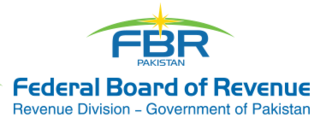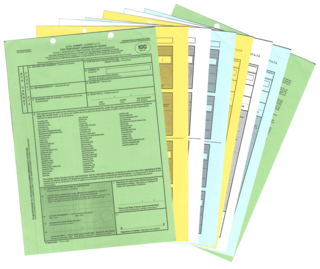
A trade agreement is a wide-ranging taxes, tariff and trade treaty that often includes investment guarantees. It exists when two or more countries agree on terms that helps them trade with each other. The most common trade agreements are of the preferential and free trade types are concluded in order to reduce tariffs, quotas and other trade restrictions on items traded between the signatories.
The Commissioner for the Environment is the member of the European Commission responsible for EU environmental policy. The current Commissioner is Karmenu Vella.

The Directorate-General for Research and Innovation is a Directorate-General of the European Commission, located in Brussels, and responsible for the European Union's research and innovation policy and coordination of research and innovation activities. It is headed by Commissioner Carlos Moedas and Director-General Jean-Eric Paquet.

The Directorate-General for Environment is a Directorate-General of the European Commission, responsible for the European Union policy area of the environment.
The Directorate-General for the External Relations was a Directorate-General of the European Commission, responsible for the external policy. The DG was merged into the European External Action Service in 2010, then headed by High Representative Catherine Ashton.

The Directorate-General for Maritime Affairs and Fisheries is a Directorate-General of the European Commission, responsible for the policy area of fisheries, the Law of the Sea and Maritime Affairs of the European Union.

The Directorate-General for Economic and Financial Affairs is a Directorate-General of the European Commission. The DG ECFIN is located in Brussels, Belgium, and Luxembourg. Its main responsibility is to encourage the development of Economic and Monetary Union both inside and outside the European Union, by advancing economic policy coordination, conducting economic surveillance and providing policy assessment and advice.

The Federal Board of Revenue is a top federal government body that investigates crimes related to taxation and money-laundering. FBR operates special Broadening of Tax Base Zones that keep tax evaders under surveillance and perform special tasks for FBR Headquarters. FBR collects intelligence on tax evasion and administers tax laws for the Government of Pakistan and acts as the central revenue collection agency of Pakistan.

The Directorate-General for Trade is a Directorate-General of the European Commission. It covers a wide area from manufactured goods to services, intellectual property and investment.

The Directorate-General for International Cooperation and Development is one of the departments of the European Commission. It operates under the authority of the European Commissioner for International Cooperation & Development, Neven Mimica.

The Commissioner for Economic and Monetary Affairs and the Euro is the member of the European Commission responsible for economic and financial affairs. The current Commissioner is Valdis Dombrovskis (EPP).

The ATA Carnet, often referred to as the "Passport for goods" or "Merchandise passport", is an international customs document that permits the tax-free and duty-free temporary export and import of nonperishable goods for up to one year. It consists of unified Customs declaration forms which are prepared ready to use at every border crossing point. It is a globally accepted guarantee for Customs duties and taxes which can replace security deposit required by each Customs authorities. It can be used in multiple countries in multiple trips up to its one-year validity. The acronym ATA is a combination of French and English terms "Admission Temporaire/Temporary Admission." The ATA carnet is now the document most widely used by the business community for international operations involving temporary admission of goods.
The EUR.1 movement certificate is a form used in international commodity traffic. The EUR.1 is most importantly recognized as a certificate of origin in the external trade in legal sense, especially within the framework of several bi- and multilateral agreements of the Pan-European preference system.
The Commissioner for Economic and Financial Affairs, Taxation and Customs is a member of the European Commission. The current commissioner is Pierre Moscovici. Until 2014 the post was named Commissioner for Taxation and Customs Union, Audit and Anti-Fraud and was previously divided prior to 2010, with audit being under control of the Commissioner for Administrative Affairs. The post was abolished in 2014, when the Juncker Commission merged the post with that of the Economic and Financial Affairs portfolio.

The European Union Customs Union (EUCU) is a customs union which consists of all the member states of the European Union (EU), Monaco, and some dependencies of the United Kingdom which are not part of the EU. Some detached territories of EU members do not participate in the customs union, usually as a result of their geographic separation. In addition to the EUCU, the EU is in customs unions with Andorra, San Marino, and Turkey, through separate bilateral agreements.
The European Customs Information Portal (ECIP) is an importing and exporting service provided by the EU for business operators of the member states of the European Union.

The Directorate-General for Migration and Home Affairs is a Directorate-General of the European Commission. The role of the body is to ensure the EU's security, to build a common EU migration and asylum policy, and to promote dialogue and cooperation with non-EU countries. Thereby, it contributes to the Area of freedom, security and justice (AFSJ).
The European Union's (EU) Common Commercial Policy or EU Trade Policy is the policy whereby EU member states delegate authority to the European Commission to negotiate their external trade relations, with the aim of increasing trade amongst themselves and their bargaining power vis-à-vis the rest of the world. The Common Commercial Policy is logically necessitated by the existence of the Customs Union, which in turn is also the foundation upon which the Single Market and Monetary Union were later established.













